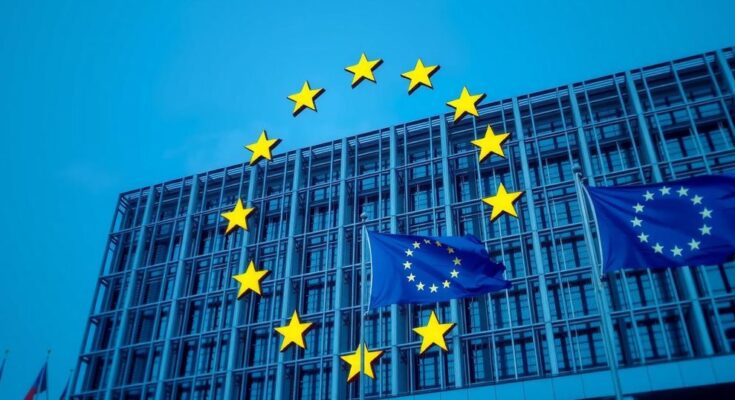The European Commission has chosen not to release its human rights inquiry findings on Tunisia, conducted prior to a contentious migration deal, raising transparency concerns. Despite multiple requests from the EU ombudsman, the commission holds back information on human rights abuses, linking these revelations to a €150 million migration pact designed to deter migrants amid rising repression in Tunisia. The ombudsman criticizes the commission for not being transparent and calls for better monitoring and complaint mechanisms for human rights abuses associated with EU funding.
The European Commission has declined to release the findings from its human rights inquiry into Tunisia, which took place just before it struck a contentious migration pact with the increasingly oppressive North African nation. This investigation, identified by the EU ombudsman, revealed a covert “risk management exercise” regarding human rights issues in Tunisia, yet the commission has opted to keep its results confidential. Brussels has long maintained there was no necessity for a human rights impact assessment following its divisive deal, which is now fraught with allegations of severe human rights abuses. Despite a formal request from the watchdog for access to the inquiry’s results, the European Commission has continued to withhold this information, raising eyebrows about what was uncovered. The migration agreement, valued at €150 million, aims to deter migrants from reaching Europe amid concerns over Tunisia’s intensifying repression and unchecked police behavior. Previous reports highlighted abuses by EU-supported security forces, including horrific acts of violence against migrants and allegations of systematic sexual violence. The state of affairs appears bleak, particularly with the recent re-election of Tunisia’s autocratic leader, Kais Saied, who has made discriminatory remarks against migrants from sub-Saharan Africa. Emily O’Reilly, the ombudsman, criticized the commission for its lack of transparency regarding human rights violations prior to the deal, emphasizing that a public assessment would have been a better course of action. O’Reilly also pointed out the absence of clear guidelines for suspending funding when human rights abuses occur, calling for more defined criteria for freezing EU financial support tied to such violations in Tunisia. The commission claimed its risk management exercise considered various relevant factors, resembling a standard human rights assessment, yet this information was not made accessible to oversight entities. In a report, O’Reilly noted the commission’s failure to proactively communicate its findings, despite ongoing scrutiny of how EU funding relates to human rights issues. The commission stated it would provide a more comprehensive response after reviewing the report’s content. Given these concerns, O’Reilly advocates for establishing complaint mechanisms for human rights monitoring organizations in Tunisia to empower victims of human rights abuses tied to EU-funded projects, ensuring that voices of those affected are heard and addressed.
The refusal of the European Commission to publish its findings on human rights in Tunisia raises significant ethical questions about transparency and accountability in international agreements. The backdrop of a controversial migration deal amidst allegations of abuse directly implicates the EU’s commitment to human rights, especially in light of growing authoritarianism within Tunisia under President Kais Saied. This scenario reflects larger tensions between migration management and human rights obligations.
The European Commission’s refusal to disclose its human rights inquiry findings into Tunisia has sparked concerns regarding transparency and the ethical implications of EU migration deals. The juxtaposition of migration policies with reported human rights violations calls for stricter guidelines and accountability measures to protect vulnerable populations and ensure the responsible use of EU funds.
Original Source: www.theguardian.com
